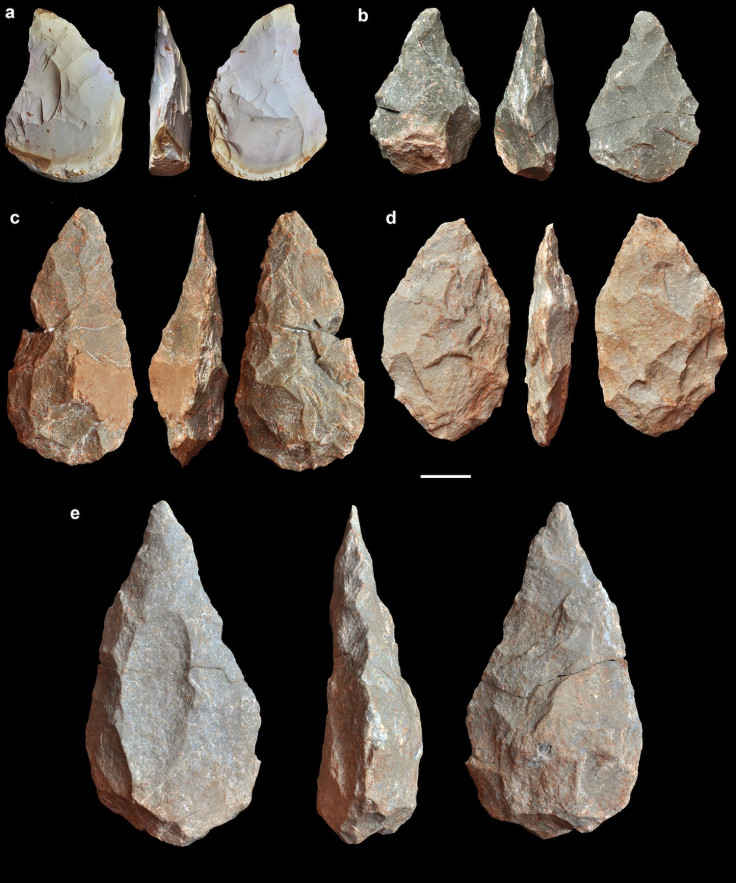400,000-year-old skull of human ancestor found by remains of fire and set of stone tools
The skull belonged to an ancestor of humans and Neanderthals.
A 400,000-year-old skull unearthed in Portugal is thought to be the oldest ever of a human ancestor discovered in the country.
The skull was found in a cave amid scattered fossilised animal remains, some of them charred, and an array of stone tools including hand axes. It is some of the earliest evidence of stone tool use of its kind in Europe. The findings are published in the journal PNAS.
The skull, of which the cranium is preserved, was fossilised in sedimentary rock between 390,000 and 436,000 years ago, dating to the mid-Pleistocene. Excavations at the Aroeira cave in Portugal also revealed a total of 387 stone tools and 180 flakes of stone that could have been the waste material from making blades from the stone.
The arrangement among the charred remains suggests that the human ancestor was intentionally using fire to cook the meat, as well as stone tools to kill and prepare it. The findings in the far south-west of Europe suggest the traditions of stone tools and the use of fire spread rapidly throughout the continent.
The skull has several Neanderthal traits, and will be an important link in the early history of the evolution and divergence of Neanderthals.
"The Aroeira cranium is the oldest human fossil ever found in Portugal and shares some features with other fossils from this same time period in Spain, France and Italy," said study author Rolf Quam of Binghamton University, State University of New York, in a statement.
"The Aroeria cranium increases the anatomical diversity in the human fossil record from this time period, suggesting different populations showed somewhat different combinations of features."
Steady progress
The cranium was found in 2014, on the last day of the field season. It was taken from the site in a large, solid block of stone, which took 2 more years to painstakingly excavate.
João Zilhão of the University of Bristol in the UK, who is also a study author, said: "I have been studying these sites for the last 30 years and we have recovered much important archaeological data, but the discovery of a human cranium of this antiquity and importance is always a very special moment."

© Copyright IBTimes 2025. All rights reserved.






















